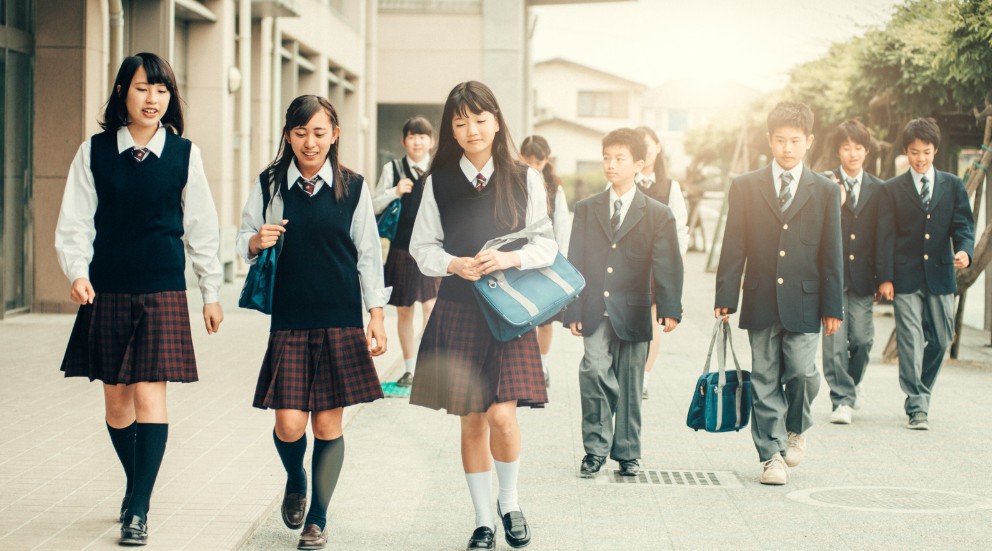Table of Contents
The concept of the legal age of consent varies significantly around the globe, reflecting cultural, legal, and social differences.
For years, Japan held one of the lowest ages of consent at 13, a topic that sparked global debate and criticism.
However, recent reforms have shifted this age to 16, aligning Japan’s laws more closely with international standards. This change signifies progress toward more excellent protection for minors.
In this blog, we will explore the intricacies of Japan’s age of consent, why it remained so low for decades, and the broader implications of the recent changes.
Whether you’re a legal enthusiast, a traveller, or simply curious about global laws, this guide provides an in-depth analysis of a critical topic in Japan’s legal landscape.
What is the Legal Age of Consent?

The legal age of consent is the minimum age at which an individual is considered legally capable of consenting to sexual activity.
This law is designed to protect minors from exploitation and abuse. The age of consent varies globally, often reflecting a nation’s cultural and legal values.
In general, the age of consent ensures that sexual activity occurs only between individuals capable of giving informed and voluntary consent.
Violating this law, known as statutory rape, carries severe penalties. Factors like close-in-age exemptions, marital laws, and regional differences can influence the application of these laws.
Understanding the legal age of consent is crucial when exploring cultural practices or legal systems in other countries.
What Is the Legal Age of Consent in Japan Today?
As of 2025, the legal age of consent in Japan is 16 or older. This update marked a pivotal moment in Japan’s legal history, as the age had previously been set at 13 since 1907.
The change was implemented through amendments to the country’s Criminal Code, aimed at strengthening protections for minors. Under the new law, individuals under 16 cannot legally engage in sexual activity with anyone older unless specific exceptions apply.
This adjustment places Japan in line with many other developed nations, where consent ages range between 16 and 18.
The updated law also introduced stricter guidelines for addressing sexual crimes, including statutory rape. It ensures more robust protection for vulnerable individuals and helps eliminate potential exploitation.
While the law signifies progress, it also introduces complexities, such as ensuring public awareness and fair enforcement.
When Did Japan Raise the Age of Consent?

The legal age of consent in Japan officially increased from 13 to 16 on Friday, 16 June 2023. This legislative milestone, part of a broader overhaul of Japan’s Criminal Code, came after over a century of the previous threshold, one of the world’s lowest. The reform addressed growing calls to better protect minors and women.
Alongside raising the age of consent, the changes introduced stricter penalties for sex crimes, defined eight scenarios for “consentless sex crimes“, and banned the filming, distribution, and possession of exploitative images taken without consent.
These updates were prompted by public outrage over high-profile acquittals in sexual abuse cases and the increasing prevalence of exploitative imagery involving women and girls.
While Japan previously revised its sexual crime laws in 2017 after 110 years, this reform reflects a more substantial commitment to victim protection.
Despite these advances, activists continue to push for broader equality, particularly regarding LGBTQ+ rights.
Why Was the Age of Consent Previously Set at 13 in Japan?
The age of consent in Japan was set at 13 in 1907 as part of the country’s first modern Criminal Code, reflecting societal norms and values of the time.
For decades, the low threshold remained unchanged, largely due to conservatism and a lack of widespread awareness of why it was problematic. Cultural attitudes emphasising privacy further discouraged legislative intervention in personal matters.
Additionally, regional laws often supplemented the national law, with many prefectures enforcing higher limits, which reduced the urgency for reform at the national level.
Despite growing global criticism, some individuals resisted the change. For instance, 56-year-old women openly objected to raising the age of consent from 13 to 16, arguing against the reform.
However, increasing awareness of the risks to minors and mounting pressure from activists, legal experts, and international observers ultimately led to the historic 2023 reform, aligning Japan’s age of consent with global standards and prioritising the protection of minors.
What Led to the Change in Japan’s Age of Consent?

The decision to raise Japan’s age of consent was driven by domestic advocacy, international pressure, and shifting societal values. Public outrage over high-profile cases of exploitation and abuse played a key role in motivating legislative action.
- A major catalyst was multiple acquittals in rape cases, which sparked widespread protests across the country.
- This outrage gave rise to the Flower Demo campaign, a grassroots movement aimed at combating sexual violence and advocating for stronger protections.
International organisations and human rights advocates also criticised Japan’s low age of consent, calling it a glaring flaw in the nation’s modern legal framework. These criticisms gained traction as awareness of sexual crimes increased.
Domestically, women’s rights groups and child protection advocates argued that the outdated laws left minors vulnerable. Responding to these pressures, lawmakers reformed the Criminal Code in 2023, raising the age of consent to 16 and signalling a commitment to safeguarding minors.
How Does the Japanese Criminal Code Protect Minors?
Japan’s Criminal Code includes various provisions designed to protect minors from abuse, exploitation, and harm. The recent reforms significantly enhanced these protections, particularly concerning sexual crimes.
Under the updated laws, individuals under 16 are considered incapable of giving consent to sexual activity with anyone older unless specific exceptions apply. Additionally, the reforms address loopholes that previously allowed offenders to escape accountability.
The code also includes strict penalties for crimes such as statutory rape and child exploitation. New measures have been introduced to address digital crimes, including the dissemination of explicit content involving minors.
These changes reflect a growing recognition of the need for comprehensive protections in an increasingly digital society.
While progress has been made, enforcement remains a challenge. Ensuring that the updated laws are implemented consistently across Japan requires an ongoing effort from both authorities and civil society.
What Are the Penalties for Violating Consent Laws in Japan?

Violating Japan’s age of consent laws carries severe penalties. Offenders found guilty of statutory rape or related crimes can face substantial prison sentences.
The exact punishment depends on the circumstances, such as the offender’s age, the victim’s age, and the nature of the offence.
The updated laws also address issues like grooming and exploitation, which were previously more challenging to prosecute. These changes aim to close loopholes and provide a clearer framework for protecting minors.
For crimes involving digital exploitation, Japan has introduced stricter penalties. Sharing explicit images of minors or engaging in online exploitation now carries significant legal consequences.
These updates reflect the government’s commitment to adapting to new challenges in the digital age.
Are There Exceptions to the Age of Consent in Japan?
Under Japan’s updated age of consent laws, the minimum legal age has risen from 13 to 16. Unlike some countries, Japan does not have states, but rather prefectures.
Importantly, the age of consent does not vary across these prefectures, maintaining uniformity in the national law.
However, there are additional laws that further protect minors:
- Bylaws for Protecting and Nurturing Adolescents: These regulations prohibit sexual acts considered indecent between adolescents (individuals under 18) and adults, even if the national age of consent is not violated.
While these rules aim to safeguard minors, they add a layer of complexity to the law. The balance between protecting young individuals and respecting personal freedoms requires careful navigation by authorities.
The updated age of consent and these complementary bylaws reflect Japan’s ongoing commitment to improving protections for its youth.
What Challenges Still Exist in Enforcing Japan’s Consent Laws?

Despite the significant progress brought by the reforms, several challenges persist in enforcing Japan’s updated consent laws.
These challenges stem from gaps in public awareness, regional inconsistencies, and the evolving nature of crime in the digital age.
Key challenges include:
- Limited public awareness: Many citizens remain unaware of the new rules, making widespread understanding and compliance a hurdle.
- Cultural attitudes: Deeply ingrained societal norms and reluctance to discuss personal matters openly can hinder effective implementation.
- Regional disparities: Enforcement varies across Japan, with local law enforcement practices sometimes inconsistent, complicating uniform application of the law.
- Digital exploitation: The rise of online crimes, including grooming and the sharing of explicit content, requires advanced tools and strategies to address effectively.
To overcome these issues, authorities must focus on:
- Conducting public awareness campaigns to educate citizens about the updated laws.
- Providing comprehensive training for law enforcement to ensure fair and consistent application.
- Closing gaps in the legal framework to address both traditional and digital challenges.
These measures are essential for ensuring the reforms achieve their intended impact.
Conclusion
Japan’s decision to raise the age of consent from 13 to 16 is a landmark reform in the country’s legal history. It reflects a growing commitment to protecting minors and aligning with global standards.
While the change represents significant progress, it also highlights the challenges of implementing and enforcing such laws.
Understanding these reforms is essential for appreciating Japan’s evolving legal and societal landscape.
As the country continues to address these challenges, the reform serves as a reminder of the importance of safeguarding the rights and well-being of its citizens.
FAQs About Japanese Legal Age of Consent
Is the age of consent in Japan 13 or 16?
The current legal age of consent in Japan is 16, raised from 13 in 2023. This change aims to better protect minors and align Japan’s laws with international standards.
What age is a minor in Japan?
A minor in Japan is defined as anyone under the age of 18, according to the Civil Code. However, certain legal provisions may vary depending on context, such as marriage or criminal liability.
Why was Japan criticised for having a consent age of 13?
Japan faced criticism for having one of the world’s lowest ages of consent, which left minors vulnerable to exploitation. Critics argued the outdated law failed to reflect modern values or adequately safeguard children.
What is the role of local prefectures in Japan’s consent laws?
Local prefectures often enforce higher ages of consent through regional ordinances, supplementing national laws. These regulations provide additional protections but sometimes lead to inconsistencies in enforcement.
How do Japan’s laws address the online exploitation of minors?
Japan has implemented strict laws targeting cybercrimes, including the sharing of explicit content involving minors. Recent reforms have increased penalties for offenders, addressing the growing threat of digital exploitation.
How do other countries in Asia handle age-of-consent laws?
Many Asian countries, such as South Korea and China, set the age of consent between 16 and 18. This places Japan’s updated age of consent closer to the regional average.
What impact has this reform had on Japanese society?
The reform has been largely welcomed as a step toward protecting minors and modernising the legal system. However, it has also sparked debates about cultural attitudes and enforcement challenges.




